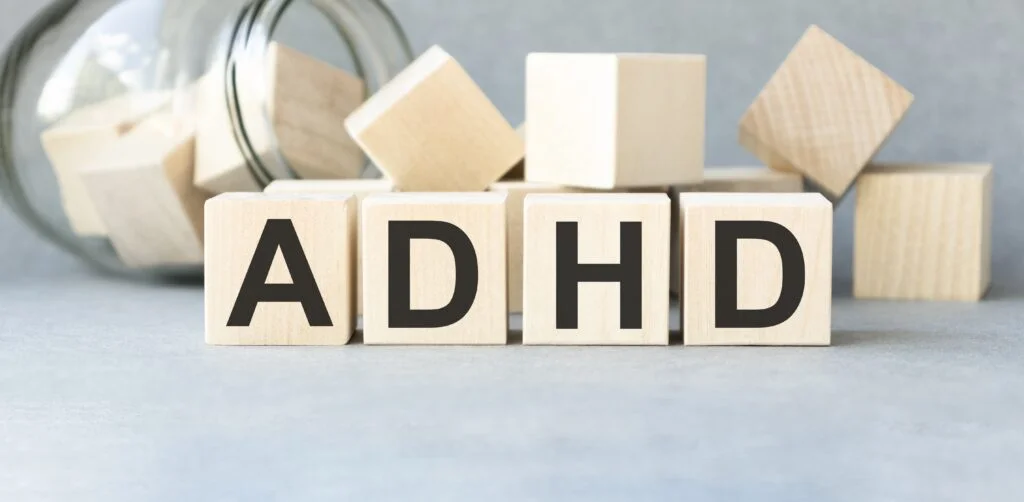
Alison is a mother of an ADHD teenager, a health scientist, and a parent and family neurodiversity coach practicing in Vancouver, B.C.
While ADHD is a neurodevelopmental condition that affects a significant number of children and adults, those with the diagnosis are still subject to a high degree of stigma and misunderstanding. This lack of respect for ADHD as a legitimate disability also translates to a lack of proper support and treatment. Myths and misinformation still abound about ADHD even though abundant scientific evidence exists documenting the structural and chemical differences in ADHD brains. The short and long-term negative impacts on ADHD children when they don’t receive appropriate treatment can be significant and life-changing (Di Lorenzo et. al., 2021). Very capable individuals can end up living a lifetime of lost potential.
Misunderstanding of ADHD Children and Adolescents
While inattention, hyperactivity, and impulsivity are considered the hallmark features of ADHD for diagnosis, seeing these three symptoms as the basis of ADHD is a far too simplified view of this condition. A defining feature also includes weak executive functioning skills which influence the ability to plan and organize, manage time and schedule, regulate emotions, and start and complete tasks. These weaknesses influence not only academic performance but behaviour and social functioning. For example, the majority of ADHD children and adolescents have difficulty regulating emotions which can lead to more explosive emotions and disruptive behaviours. Learning to regulate emotions is a skill that needs to be taught and developed over time. However, a child is often given repeated negative consequences from behaviour stemming from emotional dysregulation which does nothing to help the child build the necessary skills. The understanding that behaviour is not always wilful or within the child’s control is key to better supporting challenging behaviour in ADHD children. Too often I hear about ADHD children being pulled out of classrooms and sent to the principal’s office due to this dysregulation. Unfortunately, this is often the opposite of what these children need to learn to regulate. Instead, they need supportive, regulated adults who can connect with these kids, build safety, and help them to learn regulation skills.
Lack of School Support
Unfortunately, according to CADDAC’s own 2021 Provincial Report Card: ADHD in the School System, there is a pattern of inconsistent and inequitable educational support for students with ADHD when compared to other neurodevelopmental conditions. The provinces of Ontario, British Columbia, and Quebec received a failing grade due to students being withheld special education services unless there is an existing co-morbidity that is eligible (e.g., learning disability, or a mental health or behaviour designation). Unless students with ADHD are recognized as having a disability, they are not automatically eligible for an individualized education plan (IEP) to ensure they get the appropriate classroom accommodations and learning support. This has undoubtedly contributed to many teachers having the perspective of ADHD being a behavioural issue rather than a legitimate neurodevelopmental condition requiring specific learning support. It was notable that across all provinces there was insufficient educator training about ADHD. Sadly, academic underperformance is one of the long-term consequences of ADHD (Arnold et. al., 2020).
The Cost of Misunderstanding
Lack of proper recognition and awareness of the realities of ADHD takes a huge toll on the emotional well-being of ADHD children and adolescents. Anxiety and depression are common co-morbidities in ADHD children and adolescents (Gair et al, 2020; Meinzer, et. al., 2014). ADHD children and adolescents receive a highly disproportionate amount of criticism compared to their non-ADHD peers, and there is some evidence to show they also may be more sensitive to negative consequences (Furukawa et. al, 2017). We also know that shame results from repeated experiences of not meeting expectations and leads to ADHD children and adolescents feeling less than or unworthy compared to their peers. I am deeply saddened when I meet parents and educators who still hold the belief that ADHD children just need to try harder. This leads to these children feeling frustrated, deflated, and hopeless. What they need instead is a new strategy or a different accommodation, and an acknowledgment of how hard they are already trying. In fact, children and adolescents with ADHD are likely already trying harder than many of their neurotypical peers due to the additional mental effort it takes them to accomplish the same tasks.
In addition, and in line with what I see in my practice, research has documented high levels of stress in parents raising ADHD children. Specifically, mothers of ADHD adolescents reported the highest stress, the lowest sense of competency in their parenting skills, and the highest level of household chaos when compared to mothers of autistic adolescents, and mothers of adolescents with both ADHD and autism (Schiltz et. al., 2022). Research has also shown that when parents are able to see their child’s ADHD as a “biological disability” it helps to transform their feelings towards their child and their child’s behaviours, allowing them to have more empathy and compassion (Ringer et. al., 2020). Specifically, rather than seeing the child’s behaviour simply as unwillingness to do what was being asked, they could see that their child was struggling to meet expectations. An important part of the work I do is helping parents understand the full impact of an ADHD diagnosis for their child.
Unfortunately, ADHD continues to be seen as a condition characterized by poorly behaved children rather than a neurodevelopmental condition impacting cognitive functions that influence a large variety of abilities and behaviours. Somehow, we continue to leave too much of the burden on the ADHD child rather than acknowledge the continued misunderstanding of ADHD, the deficiencies in the educational system, and the insufficient resources to support ADHD children and adolescents. I am first to tell my ADHD clients that their ADHD brain wiring can bring them huge strengths – these kids are unique, energetic, creative firecrackers. But too many of these brilliant children and adolescents feel like their ADHD is nothing but a curse because they don’t meet neurotypical standards. I have yet to meet an ADHD child or adolescent who doesn’t want to do well. Our job is to make it possible. And one of the most important steps is not allowing ADHD to continue to be disrespected as the serious neurodevelopmental condition that it is.
References
Arnold, L. E., Hodgkins, P., Kahle, J., Madhoo, M., & Kewley, G. (2020). Long-term outcomes of ADHD: Academic achievement and performance. Journal of Attention Disorders, 24(1), 73–85.
Centre for ADHD Awareness, Canada (CADDAC). (2021). 2021 Provincial Report Card: ADHD in the School System. https://caddac.ca/wp-content/uploads/ADHDReportCardCompleteENGrev2021-final-1.pdf
Di Lorenzo, R., Balducci, J., Poppi, C., Arcolin, E., Cutino, A., Ferri, P., D’Amico, R., & Filippini, T. (2021). Children and adolescents with ADHD followed up to adulthood: A systematic review of long-term outcomes. Acta Neuropsychiatrica, 33(6), 283-298.
Furukawa, E., Alsop, B., Sowerby, P., Jensen, S., & Tripp, G. (2017). Evidence for increased behavioral control by punishment in children with attention‐deficit hyperactivity disorder. Journal of Child Psychology and Psychiatry, 58(3), 248-257.
Gair, S. L., Brown, H. R., Kang, S., Grabell, A. S., & Harvey, E. A. (2021). Early development of comorbidity between symptoms of ADHD and anxiety. Research on Child and Adolescent Psychopathology, 49(3), 311-323.
Meinzer, M. C., Pettit, J. W., & Viswesvaran, C. (2014). The co-occurrence of attention-deficit/hyperactivity disorder and unipolar depression in children and adolescents: a meta-analytic review. Clinical Psychology Review, 34(8), 595-607.
Ringer, N., Wilder, J., Scheja, M., & Gustavsson, A. (2020). Managing children with challenging behaviours. Parents’ meaning-making processes in relation to their children’s ADHD diagnosis. International Journal of Disability, Development and Education, 67(4), 376-392.
Schiltz, H. K., McVey, A. J., Gonring, K., Haendel, A. D., Murphy, C., Van Hecke, A. V., & Gerdes, A. (2022). Examining differences in parenting stress, parenting efficacy, and household context among mothers of youth with autism and/or ADHD. Journal of Child and Family Studies, 31(3), 774-789.

Life inside an ADHD brain can be…unpleasant at tim... Read More

Growing up, my late father told me that I was “bor... Read More

Many of us ADHDers have heard about the analogy th... Read More

Shaming has been the name of the game for kids wit... Read More

Many parents find themselves redefining what “home... Read More